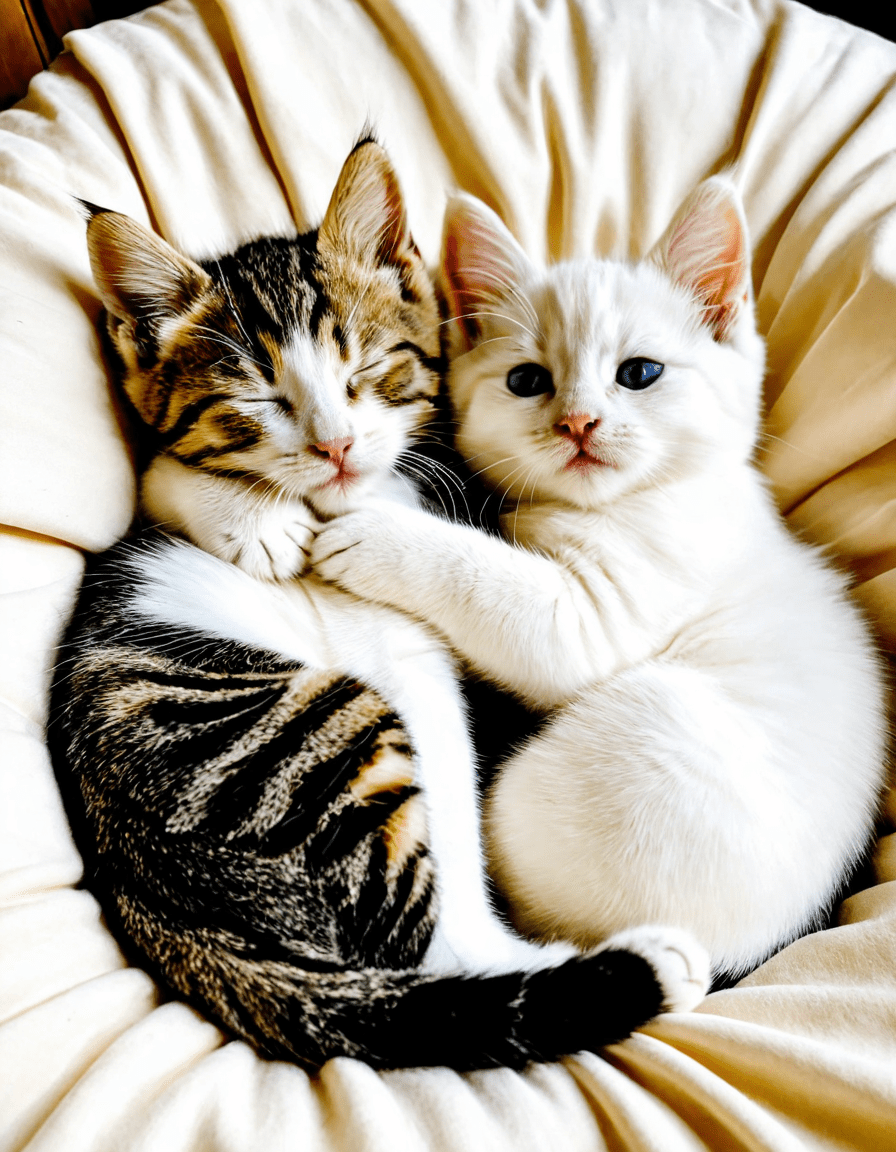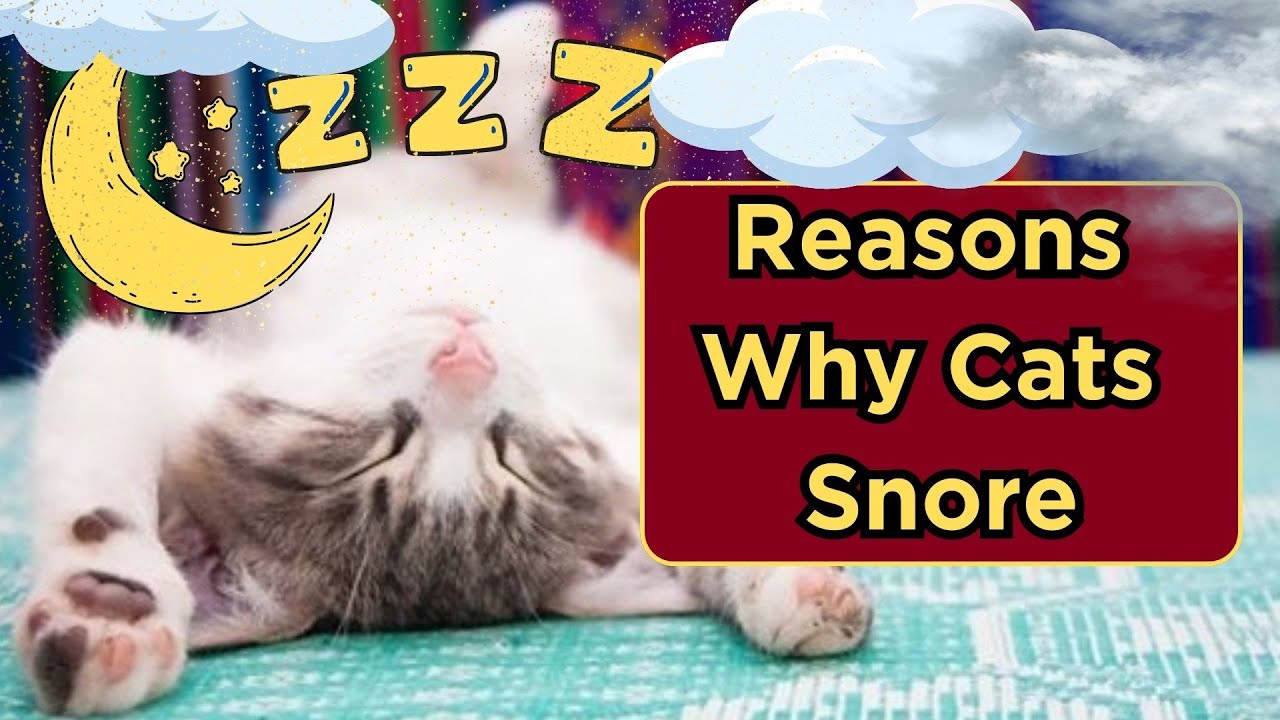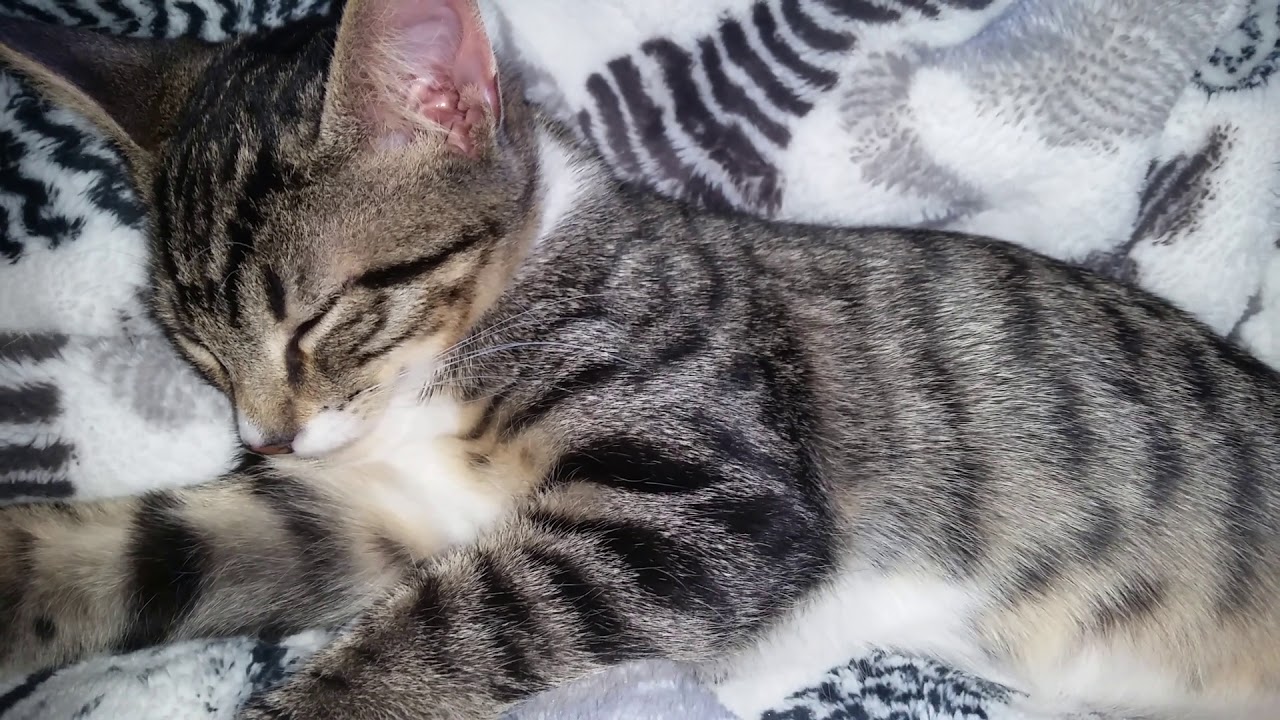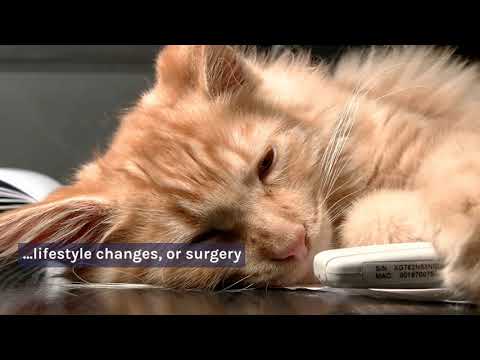The gentle sounds of a cat purring often accompany their dreams, but what about the adorable and sometimes surprising phenomenon of snoring? Many cat owners wonder, “Is it normal for cats to snore?” The short answer is yes, it can be normal! This article delves deep into the phenomenon of feline snoring, exploring what it means for your cat’s health and how it compares to other pets in your home.
Cat snoring might catch you off guard the first time you hear it, especially in the quiet hours of the night. However, understanding why and when cats snore can help you appreciate this charming behavior and ensure your furry friend’s well-being. Let’s dive into the top reasons your cat might be snoring.
Top 5 Reasons Why Cats Snore: Is It Normal for Cats to Snore?
1. Anatomy of the Breed
Certain cat breeds are more likely to snore than others. Breeds like the Persian or Himalayan have flat faces, which can lead to breathing difficulties. This condition is known as brachycephalic airway syndrome. According to a study published in the Journal of Feline Medicine and Surgery, these breeds can exhibit significant respiratory challenges. If you have one of these breeds, don’t be surprised if their cute snores become a part of your household soundtrack!
2. Sleep Position
Just like us humans, cats have their favorite sleep positions, which can influence their snoring. Some cats prefer to sleep curled up, while others stretch out flat on their backs. When a cat sleeps flat, the weight of its body can compress the airways, leading to snoring. A survey revealed that nearly 60% of cats like to curl up, showing that their preferred sleeping postures could be the reason behind those quirky sounds.
3. Weight and Health Factors
Just as excess weight can cause snoring in humans, it can do the same for cats. Overweight cats may have additional fat around their neck, obstructing airflow and contributing to snoring. Alarmingly, a study by the Association for Pet Obesity Prevention indicated that 60% of cats in the U.S. are classified as overweight or obese. Monitoring your cat’s diet and ensuring they stay active can help reduce snoring caused by weight.
4. Sleep Disturbances
Cats have unique sleep cycles, including REM sleep, where they dream. During this deep sleep phase, you might hear your cat starting to snore. Understanding when cats are likely to snore can help you differentiate between normal snoring and any health concerns that might arise. This snoring is typically harmless unless it noticeably increases.
5. Underlying Health Issues
While an occasional snore can be perfectly normal, chronic snoring—especially when accompanied by other symptoms like coughing, labored breathing, or lethargy—can signal health issues. Conditions such as allergies, asthma, or even respiratory infections might require a visit to your veterinarian. Keeping an eye on your cat’s overall health can help you identify if their snoring is something to be concerned about.
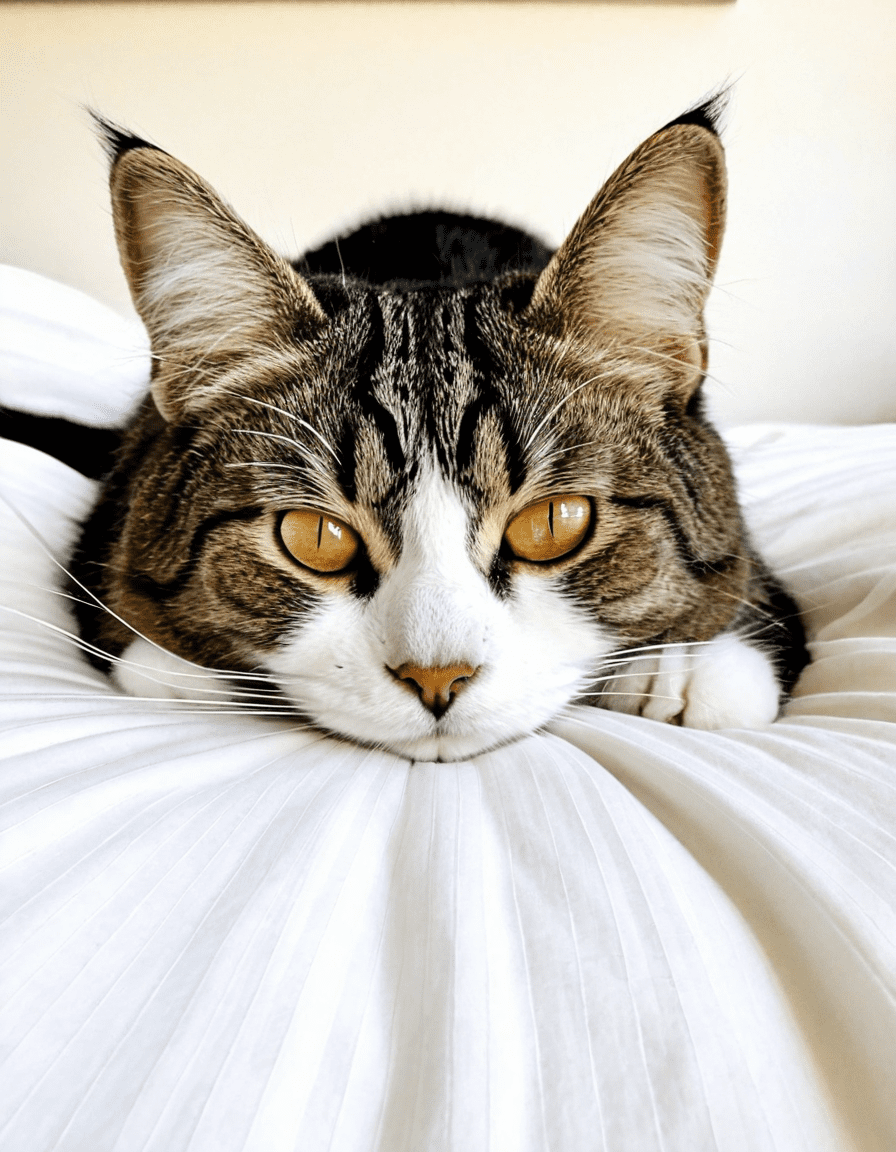
How Does Cat Snoring Compare to Dog Snoring?
Wondering about more than just feline noises? You might be asking yourself, “Can a dog snore?” Just like cats, dogs can snore too, especially certain breeds with flat faces like Pugs and Bulldogs. Their unique anatomy makes them susceptible to airway problems that also cause snoring in cats. The American Kennel Club confirmed that snoring in dogs usually stems from issues similar to those impacting cats—such as obesity and sleep position.
Do Dogs Snore More Than Cats?
In general, larger dog breeds tend to snore more often than cats. Giant breeds, like Great Danes, have larger airways, which can lead to louder snoring even though their sleep habits often resemble those of cats. Interestingly, cats typically snore at a lower volume, making their snoring a cute background noise rather than a disruptive one.
Can Dogs Sleep with Their Eyes Open?
Another intriguing question is whether canines can sleep with their eyes open. Yes! Dogs are known to sometimes doze off with their eyes slightly open, especially during light sleep. This reflex is less common in cats. Being aware of these differences in sleep behavior can give pet owners a better understanding of their furry friends.
Monitoring Your Cat’s Snoring: When to Be Concerned
So, how do you know if your cat’s snoring is something to worry about? If your cat only snores occasionally and shows no signs of distress, it’s usually nothing to fret over. However, it’s essential to remain attentive to your cat’s well-being.
Keep an eye out for:
– Increased frequency of snoring
– Signs of discomfort or restlessness
– Any difficulty breathing or coughing
If your cat shows any of these symptoms, don’t hesitate to schedule a vet appointment to investigate further. Knowing the difference between normal and problematic snoring can help protect your furry family member’s health.
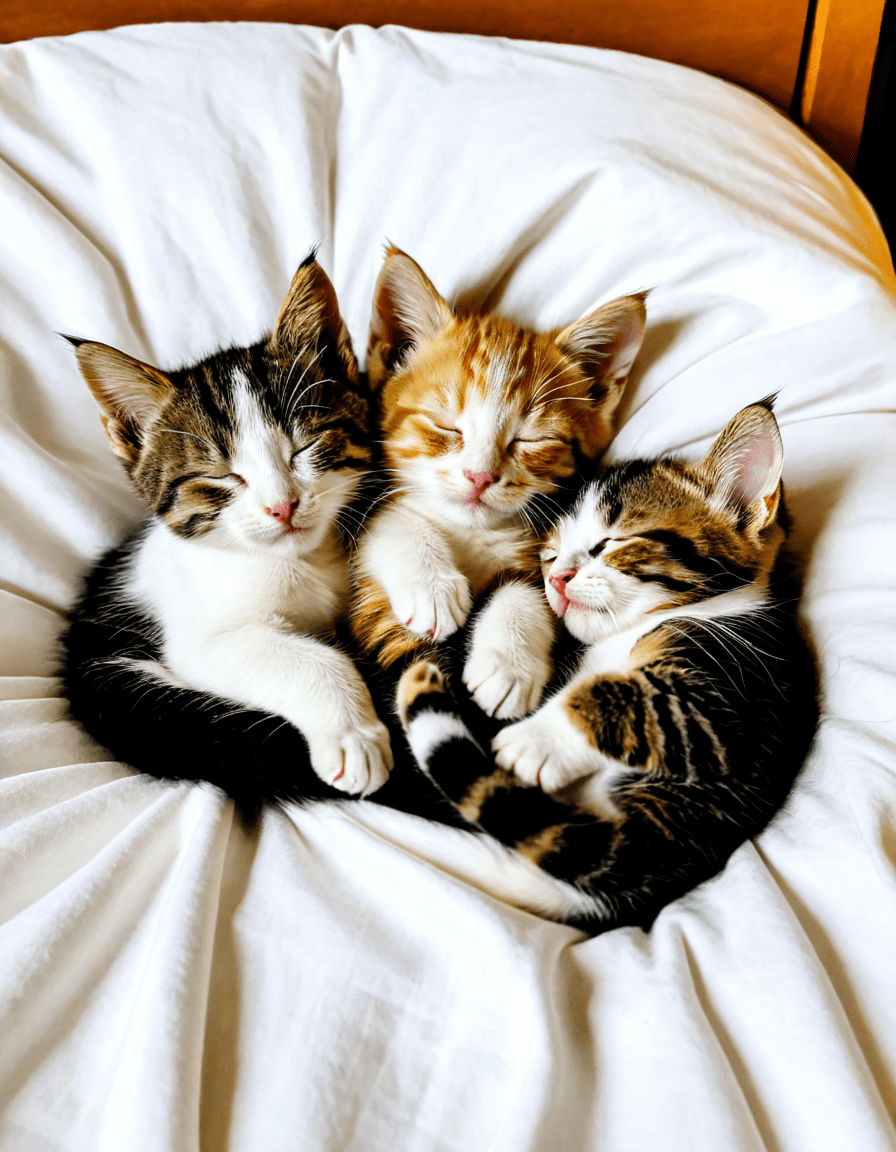
Owning Both a Dog and a Cat: Snoring Dynamics in Your Household
For those who share their homes with both dogs and cats, understanding their differing snooze styles—including how they snore—can enhance your appreciation for both pets. Dogs typically sleep flat on their sides or backs, which can lead to louder snoring, while cats often curl into cozy little balls, keeping things quieter.
Recognize these behavioral distinctions to ensure that both your pets feel comfortable and secure. Creating a quiet sleep zone for your furry companions might minimize unnecessary disruptions at night. Peaceful rest for both species means a happier household for everyone.
In answering the question, “Is it normal for cats to snore?” it’s essential to appreciate that, for many feline companions, snoring just adds to their charm. Every cat has their personality, and snoring can vary based on breed, position, and overall health. By staying informed and vigilantly watching for any signs of distress, you ensure not just a restful sleep for them but a healthy lifestyle. Embrace the little quirks of your snoring kitty—after all, it’s part of what makes them uniquely yours!
For more insights on pet care, such as how to handle health questions like spotting a black speck on Gums or tips for maintaining your cat’s health, feel free to explore our resources at Pets Dig.
Is It Normal for Cats to Snore? Fun Trivia and Interesting Facts
The Feline Sleeping World
So, is it normal for cats to snore? You bet! In fact, many cats will snore just like humans do, especially when they’re in a deep sleep. Interestingly, this cozy habit can be influenced by multiple factors. Breeds like the long-haired Siamese may be more prone to snoring due to their unique facial structure. While your furry companion catches those Z’s, it’s amusing to imagine how their dreams might be filled with adventures—perhaps chasing a pesky laser pointer or plotting a takeover of the sofa!
But wait, there’s more about our snoozing furballs! Did you know that cats can have various sleeping positions? They may curl up in a tight ball or stretch out luxuriously, and it’s during these positions that snoring often occurs. It’s a festive sound in our households, giving us a glimpse into their peaceful slumber. Speaking of unique sleep habits, have you ever thought about the nocturnal antics of a blue tongue skink? If you’re considering adding one to your family, you might want to buy a blue tongue skink—they( have their quirky traits, too!
Why Do Cats Snore?
Now, let’s dive into the nitty-gritty. So, is it normal for cats to snore, or is something wrong? Snoring is often just a natural part of a cat’s sleep cycle. Yet, it can also hint at underlying issues, like allergies or even weight-related health concerns. If your kitty’s snoring seems excessive or coupled with other symptoms, keep an eye on them! You wouldn’t want to miss out on anything that needs addressing, just like ensuring that your home smells fresh with a good cat pee deterrent when their antics take a turn.
Imagine if your cat’s snoring is loud enough to wake you up—how annoying! But hey, did you know cats can also produce other amusing sounds while they sleep? Purring, soft chirps, or even the occasional gurgle can accompany their slumber symphony! Just think about it: with a little Aloha Hawaiian bbq aroma wafting in the air, settling down next to a snoozing cat can be quite the cozy experience.
The Science of Cat Snoring
In addition to breed, age, and health, the anatomy of your feline friend plays an essential role in whether or not they snore. Flat-faced breeds, for example, often snore more than others due to their shorter noses and narrower airways. Does that mean your cat is destined for a life of snoring? Not at all! Plenty of factors come into play. Cool fact: a snoring cat’s breathing might even mimic the sounds of classic movies starring talented actresses like Sigourney Weaver—sometimes they just create a dramatic moment right while dreaming!
So, remember, the next time you hear your kitty snoring, it might just be a sign of a contented cat living their best life. If you’re curious about how the sounds compare to other pets, those intriguing tidbits will keep you entertained. Speaking of inspiration, if you’re still battling stubborn odors, a little research on products like miconazole cream can lead to you finding assistance, not just for sounds but for overall pet care!
